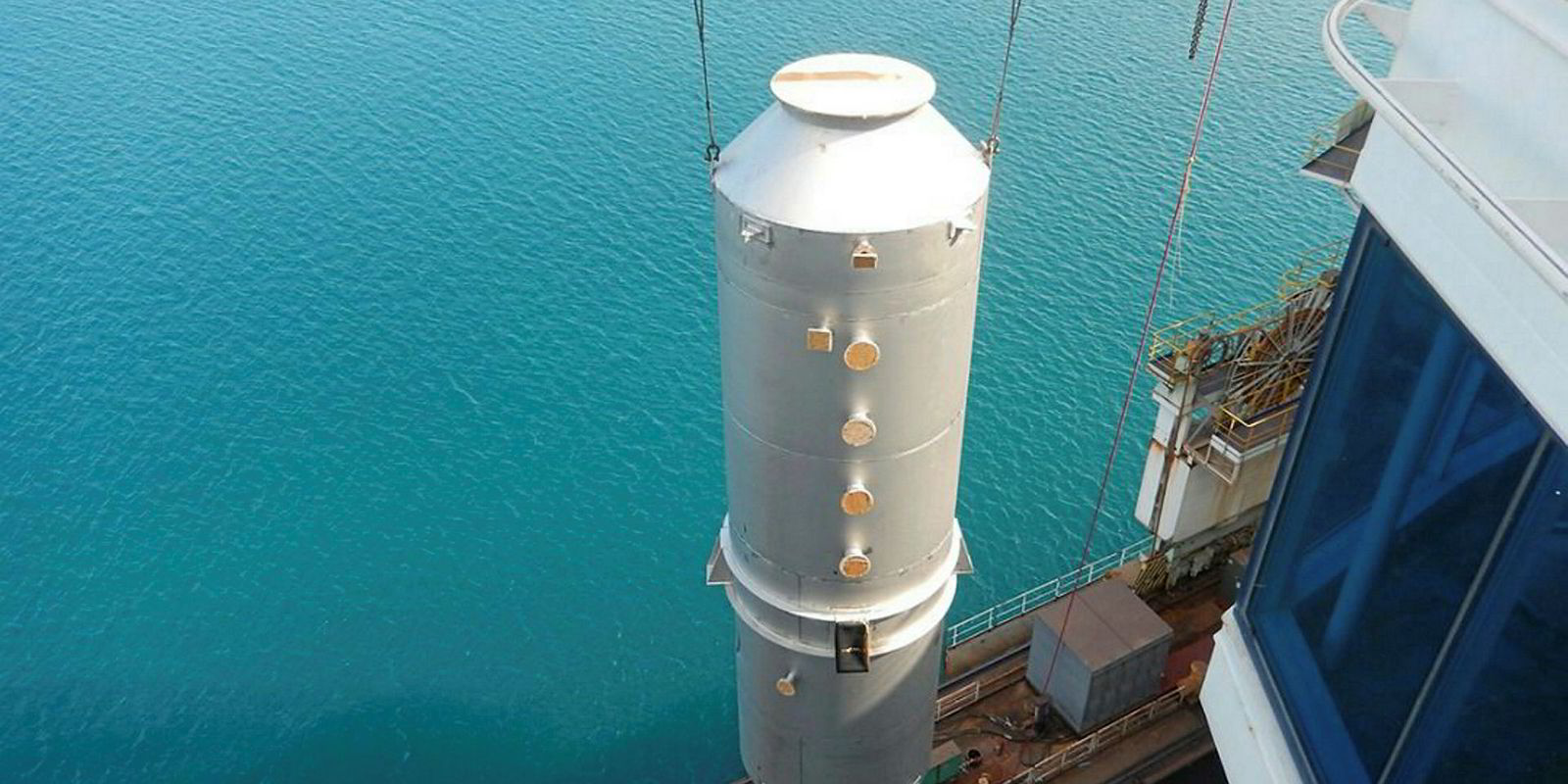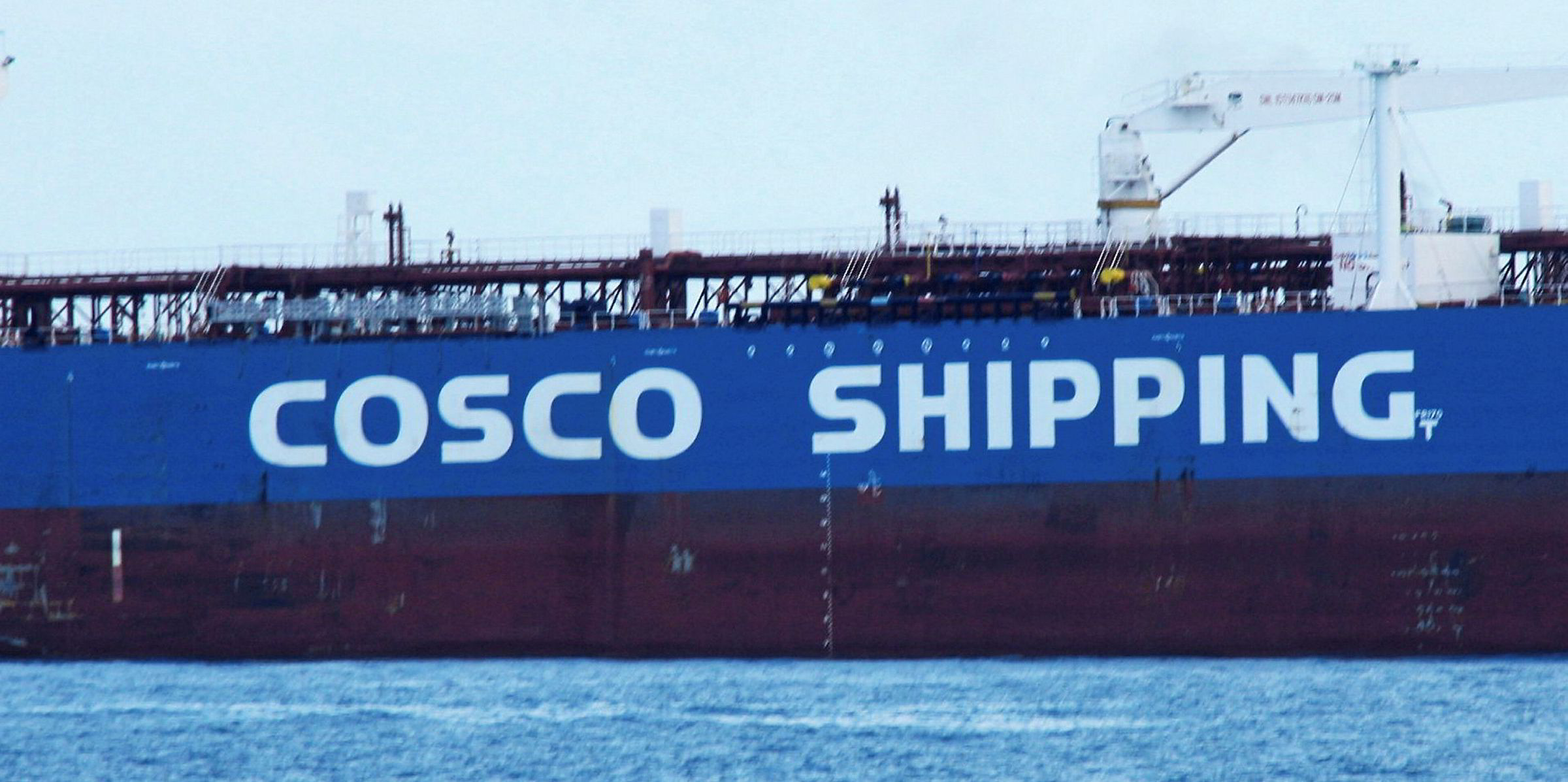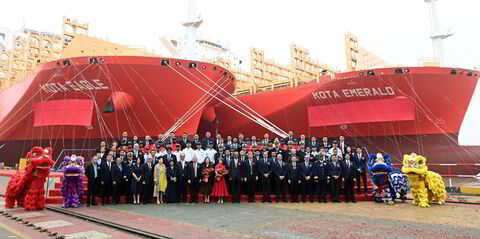A Swedish study claims that exhaust gas cleaning systems are harmful to marine life, following a series of scientific reports offering different conclusions on their overall impact.
Both open-loop and closed-loop types pose harm to copepods, a zooplankton vital to the seas' lower food chain, according to a Swedish Environmental Research Institute (SERI) analysis.
"Zooplankton is a crucial link between phytoplankton and higher trophic levels like fish and marine mammals," the 44-page study states.
"Toxic effects on zooplankton will therefore have serious consequences for the whole marine ecosystem."
Copepods exposed to untreated effluent from open-loop scrubbers died within eight days while other exposed to treated discharge from closed-loop kits died within one day, according to the report.
Different conclusions
The study, conducted in December 2018 and published on 24 June this year, follows a series of scientific scrubber analyses offering varying conclusions on their effects on marine life.
Essentially, some have said they threaten sea organisms, while others said they are harmless.
For example, Japan's Ministry of Land, Infrastructure, Transport and Tourism in February released a study saying scrubber effluent is safe for the marine environment.
Earlier that month, a study by the German Environment Agency claimed it is a "direct pollution source".

"Other studies may be performed correctly and come to other conclusions, depending on which organisms are exposed and so on," SERI researcher Hulda Winnes told TradeWinds.
"So, from a research perspective, it is not a question of believing one side or the other.
"Basically, if clear results are seen, as was done in our studies, they cannot be ignored and should instead be considered to add scientific information to the discussion."
An email to scrubber advocacy group Clean Shipping Alliance 2020 was not returned.

Lars Carlsson, a partner at zero-emission ship developer Windship Technology, highlighted the study as he argued for carbon-neutral vessels as emissions regulations get even tighter in the future.
"Let us forbid scrubbers and instead invest in carbon-neutral vessels for net-zero emissions from shipping," he told TradeWinds. "Those who already have rushed to purchase scrubbers in the stampede for cheap fuel, hold your breath for a miracle delay in anti-scrubber legislation."
Some scientists and pro-scrubber shipowners, including Carnival Corp, have said that further studies are needed to determine the devices' impact on marine life.
In February, Clear Seas Centre for Responsible Marine Shipping hired Canadian ship designer Alion Science & Technology to conduct a study on the impact of open-loop scrubbers.
Eric Martin contributed to this article.






